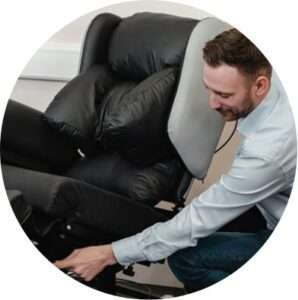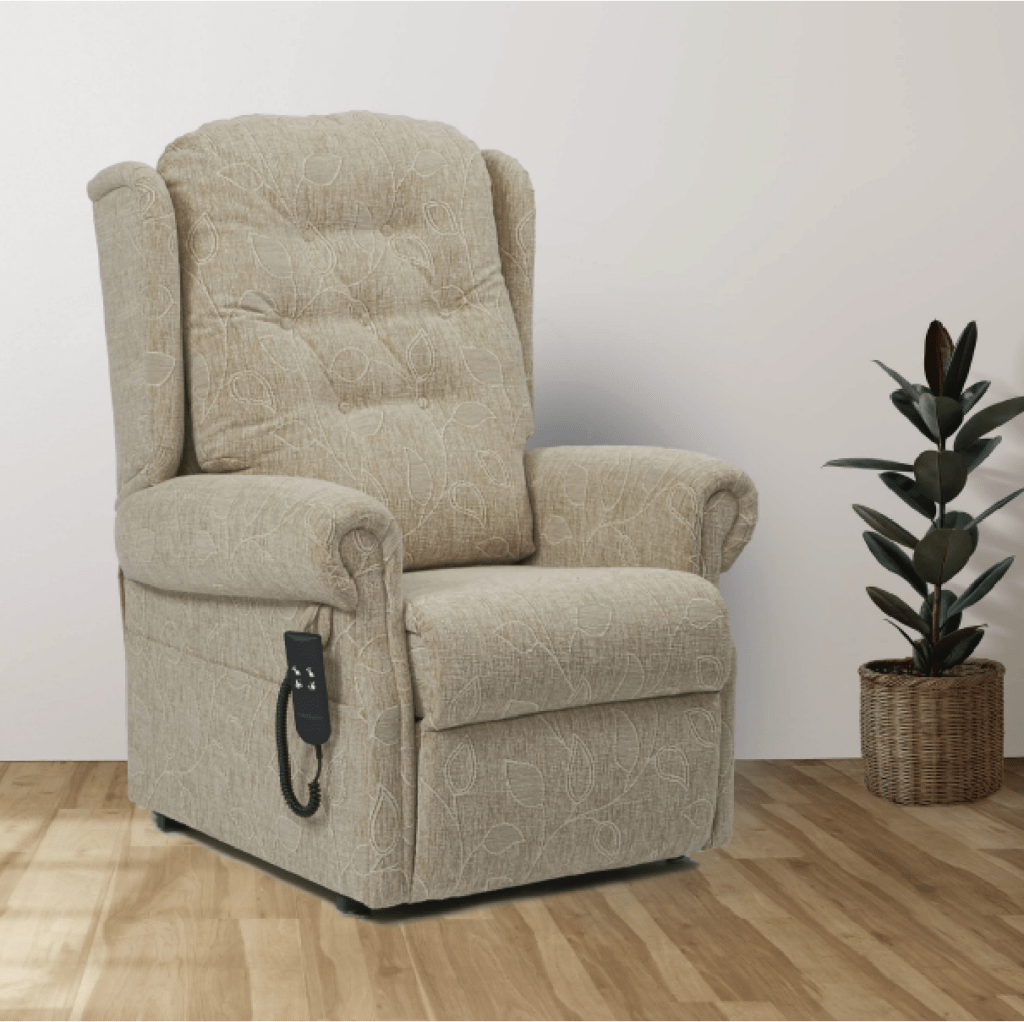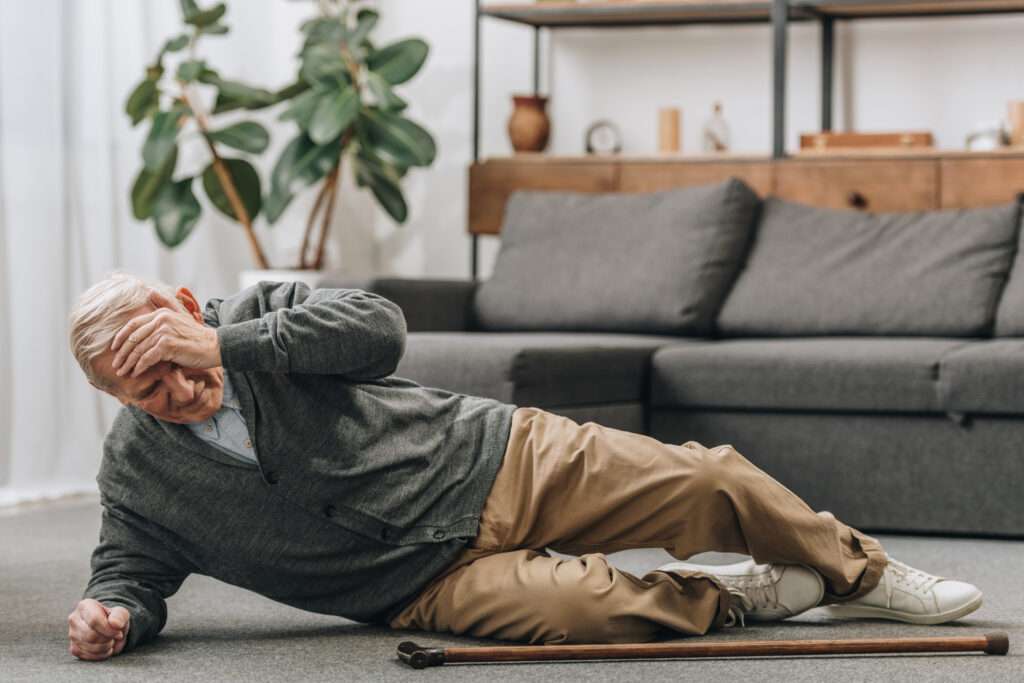NHS Continuing Healthcare (NHS CHC) is a service that supports people in the community with long-term and complex health needs. It is funded solely by the NHS, as opposed to social care services that are funded by local authorities.
The focus of our work at Vivid Care is to provide complex cases and those with challenging conditions with the best resources to enhance their quality of life. This aligns very much with the work that CHC teams do, and we have worked with NHS CHC teams for many years specifying seating and specialist equipment for these complex needs.
In this blogpost we look in more detail at how specialist seating can support the NHS Continuing Healthcare service.
Jump straight to…
What is NHS continuing healthcare?
The NHS Continuing Healthcare service is for adults with significant ongoing health needs aged 18 and over, arranged and funded solely by the NHS.
Who qualifies for NHS continuing care?
Qualification for NHS CHC funding doesn’t depend on a particular condition or diagnosis, but rather whether the individual has a ‘primary health need’. We explain more about what is classed as a primary health need below.
Your local Integrated Care Board (ICB) is responsible for deciding if you qualify for CHC care. The initial stage of this process is a checklist used in the screening process, which is available for you to download to see if you think you qualify.
The second stage to the eligibility process is a full assessment for those who have passed the checklist test. This is conducted by a Multidisciplinary Team of healthcare professionals from different backgrounds.
The tool used to complete the assessment is the Decision Support Tool, known as the DST, to help them determine if you have a Primary Health Need. You can find out more about the DST tool here.
A Primary Health Need might sound like a fairly generic term, but in the context of CHC focuses on 4 key areas relating to your health problems: Nature, Intensity, Complexity, and Unpredictability. The MDT team refer their decision back to the ICB board to get the funding awarded.
If funding is awarded this replaces any existing social care services in place. This is then reviewed on a 3-monthly basis to check in with the client and make sure the care provision is up to date with their needs.
What are the 12 domains for NHS continuing care?
The 12 care domains included in the DST tool are:
- Breathing
- Nutrition – food and drink
- Continence
- Skin and tissue viability
- Mobility
- Communication
- Psychological and emotional needs
- Cognition
- Behaviour
- Drug therapies and medication: symptom control
- Altered states of consciousness
- Other significant care needs
Who should be present at a CHC assessment?
There should be at least three care personnel at the assessment, which would typically include a representative from the CHC team, one from social services, and the carer involved with the patient’s day-to-day care e.g. care home employee or care agency worker. A family friend and/or relative can also be in attendance.
There may be other people present if the patient receives additional support, such as mental health workers.
What percentage of CHC assessments are successful?
For standard CHC assessments, the success rate is within the range of 13 – 25%. This means that a significant number of people who are deemed eligible from the initial eligibility checklist do not ultimately obtain funding. This highlights the importance of the MDT assessment and DST criteria that this is based on.

How can I improve chances of a successful CHC assessment?
Securing NHS Continuing Healthcare funding is not always straightforward, and unfortunately many applications are declined following the assessment stage. One way to strengthen an application is to ensure that clinical needs are fully and accurately documented, including those relating to specialist seating.
Therapists play an essential role in this process, and it is important that they clearly document how seating impacts the person’s care. For example, where poor posture or inadequate seating contributes to issues such as malnutrition, skin breakdown, or behavioural distress, this should be recorded in detail. Seating recommendations should be linked directly to the four key decision-making factors of the Decision Support Tool – unpredictability, intensity, complexity, and nature of need.
A carefully completed seating assessment can influence DST scoring by providing objective evidence of the risks associated with poor seating provision, as well as the clinical improvements achieved through specialist equipment. This may be the difference between being deemed to have a ‘primary health need’ and being referred back to social care services.
Find Out About Our Free Seating Assessment Service
How specialist seating can contribute to CHC eligibility
Specialist seating goes beyond just extra comfort, it is a clinical necessity for those with complex needs. The quality of seating provision directly supports a number of the 12 care domains assessed in the CHC process, which can strengthen an application for funding.
Safe and independent mobility
For people with limited mobility, correct seating enables transfers, access to hoists, and safe repositioning. This reduces the risk of falls, increases independence, and supports safer care delivery by staff and family carers.
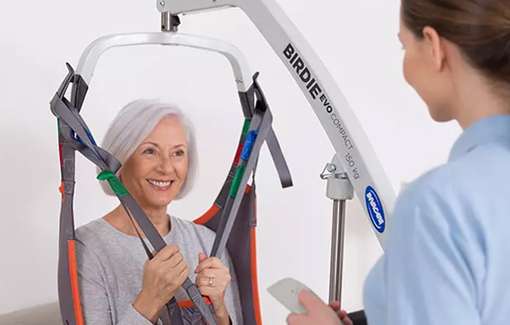
Pressure relief and postural stability
One of the most common risks in long-term care is the development of pressure ulcers. Specialist chairs can be configured to provide pressure management and postural correction, reducing tissue breakdown and promoting long-term skin viability.
Learn More About Pressure Care Technologies in Seating
Reduced behavioural distress
Discomfort, poor positioning, or pain from inadequate seating can increase agitation and behavioural challenges. By supporting optimal alignment and comfort, specialist seating can reduce distress, improve mood, and enhance quality of life.
Improved nutrition and hydration
Proper seating allows individuals to maintain an upright position during meals, which supports safer swallowing, reduces aspiration risk, and encourages better nutrition and hydration. This has a direct effect on overall health and wellbeing.
By addressing multiple care domains at once, specialist seating can highlight the complexity and intensity of care needs, and contribute directly to CHC eligibility.
How we can help support NHS Continuing Healthcare
At Vivid Care, having worked alongside CHC teams for many years delivering assessments and seating reviews, we understand the innate challenges of securing NHS Continuing Healthcare funding. Our services are designed to complement CHC assessments and help individuals achieve the best possible outcomes.
Specialist assessment services
We provide detailed seating assessments, either in a client’s home or care environment, with comprehensive reports that can be used to support CHC applications.
Contact Us For a No Obligation Seating Assessment
Wide range of seating options
From tilt-in-space chairs to our highly adjustable Lento seating range, we supply solutions tailored to each person’s postural, mobility, and clinical needs.
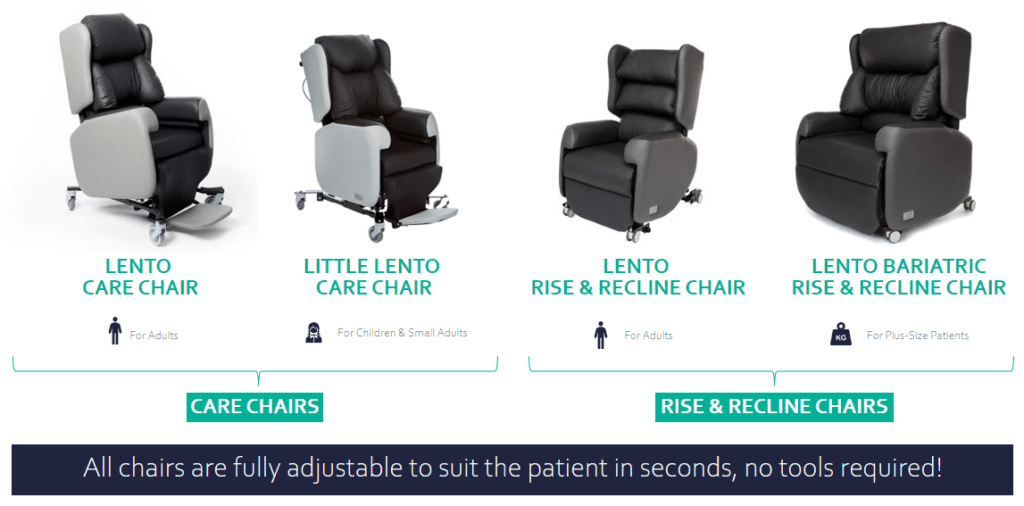
Clinical partnerships
Our team regularly works alongside occupational therapists, physiotherapists, and CHC teams to ensure assessments are accurate, evidence-based, and clinically robust.
Conclusion
If you or someone you support is undergoing the CHC checklist or full assessment process, we would encourage you to get in touch with us. Our team can provide guidance, assessments, and equipment that not only improves quality of life but also strengthen the case for NHS Continuing Healthcare funding.
Contact Us Today Arrange an Assessment
Frequently Asked Questions
What is NHS continuing healthcare?
It is a package of care for adults with long-term, complex health needs, fully funded by the NHS.
What is the CHC checklist?
The continuing healthcare checklist is a screening tool used by the NHS to determine whether someone should have a full CHC assessment.
What are the chances of getting NHS CHC funding?
Success rates vary, but typically only 13–25% of people assessed are awarded CHC funding.
How can specialist seating help with CHC eligibility?
Seating supports multiple care domains such as mobility, skin integrity, behaviour, and nutrition, making it easier to demonstrate a primary health need.
Who can attend a CHC assessment?
A CHC representative, a social services representative, and a carer are usually present, along with family members and relevant healthcare professionals.



